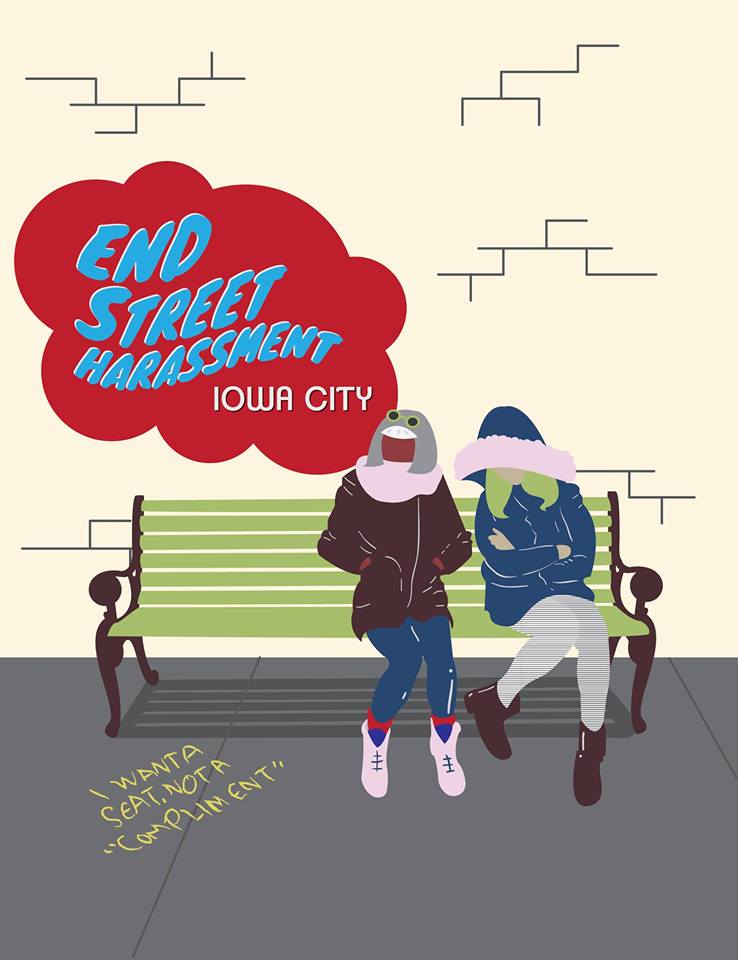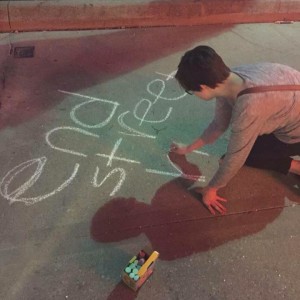
International Anti-Street Harassment Week is an opportunity to raise awareness and protest the gender-based violence that occurs in our communities year-round. This year, in addition to a chalk-the-walk, op-ed writer’s workshop, several community-wide art projects, and a concert/bystander intervention training, End Street Harassment – Iowa City has organized a support group where victims of harassment can share their experiences in a safe space. The group will be facilitated by professional social workers and counselors. During the event, participants will have the option to create posters protesting harassment, which will then be displayed throughout our community.
I co-facilitate a weekly music and art support group at an emergency shelter for survivors of domestic violence. Since starting the group, I’ve witnessed how cathartic and empowering it can be for victims of trauma to voice their stories and vent in a comfortable environment. We laugh, cry, and practice grounding and mindfulness exercises, such as deep breathing, stretching, and progressive muscle relaxation techniques. We also color, paint, make crafts, journal, write poetry, and rewrite popular songs so that they are about our personal experiences. This work served as the inspiration for a street harassment support group.
Some dismiss street harassment as a trivial issue. To me, street harassment is an every-day occurrence that reinforces the detrimental power dynamics that lead to gender-based violence. Street harassment is terrifying because victims do not know if the encounter will end in sexual or physical assault. Street harassment disproportionately affects women, LGBT* individuals, and people of color. It reinforces power inequalities and prevents those who are affected from moving through public space safely and with dignity.

When someone characterizes street harassment to me as “harmless” – or, even worse, a “compliment” that I should receive gratefully – I share a story about an abuse survivor I worked with who fled her home and community to save her life. While walking in public in a new city, a man in a car honked at her and catcalled her. Her first thought was “my abuser has found me,” followed by “could he have paid someone to follow me?” She had an intense panic attack as a result of being catcalled and she was unable to accomplish any of her goals that day related to securing housing or employment, which caused her stress and further anxiety. Perpetrators of harassment shouldn’t need to hear stories like this to cease their behaviors.
Our support group will hopefully give victims of harassment a place to process their experiences and know they are not alone. Actions protesting harassment that will occur in Iowa City – and around the world – this April can help make our communities safer for everyone. Together, we can end street harassment.
Stella Hart is a writer and activist who lives in Iowa City, Iowa. She is a founding member of End Street Harassment – Iowa City.
